All staff at Chester Zoo are dedicated to protecting biodiversity and fighting to save species from extinction; whether it’s within the zoo, in the UK or overseas. Every effort goes into ensuring the highest standards of well-being and the best care is given to all animals and their habitat.
Chester Zoo has an in-house team of vets and nurses to provide clinical care to the animals at the zoo. We’ve asked one member of the team to provide us with an insight into his daily activities here at the zoo and how they link to our conservation work both in the zoo and in the field.
“I’m Steve Unwin, one of the veterinary officer’s at Chester Zoo, and I’ve been working here since May 2003.
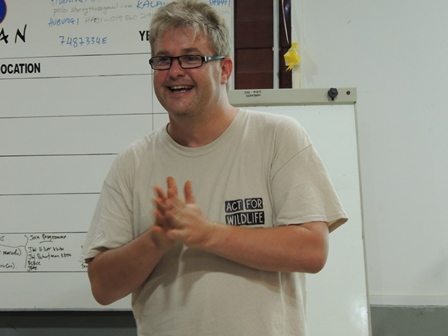
“A typical day for me is untypical! First, the animal health centre team has a 20-30 minute ‘rounds’ – this is where we discuss current cases as a group and work out the plan for the day.
“We can see everything from a spider to an elephant during the course of one day, be it for medical or surgical reasons. A lot of our call outs are for preventative health reasons and we work closely with the animal management and keeper teams to highlight potential issues before they occur and work together to prevent them.
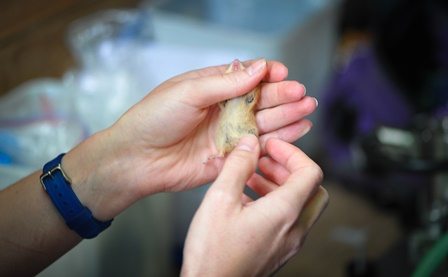
“Beyond the zoo clinical service, the team works closely with the field conservation, science, PR and education teams and is involved in university lecturing, clinical research and field work sporadically throughout each year.
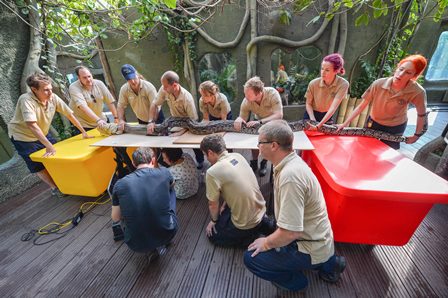
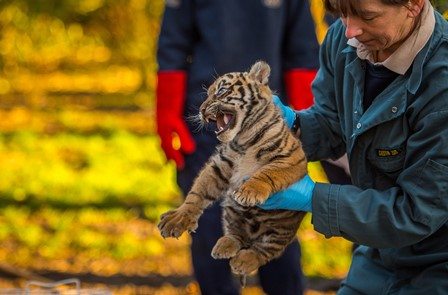
“Our work with the orangutans is largely preventative medicine based, health checks, disease surveillance such as parasitology, and investigation on the rare occasions an orangutan gets sick.
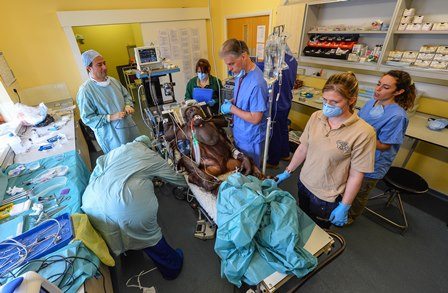
“We are currently working with colleagues all over the world on a multitude of health topics for orangutans and great apes. In Malaysia and Indonesia we are collaborating with colleagues investigating tooth emergence in orangutans. We are also working with the European Aquarium and Zoo Association (EAZA), Orangutan Conservancy – Orangutan Veterinary Advisory Group (OC/OVAG), Cardiff Metropolitan University and the Wellcome Trust Sanger Institute on various projects.
“All of this work (preventative health/ surveillance through to specific investigations) helps orangutans in the wild.
“Here are a couple of examples:
“Our methods of investigating air sacculitis in orangutans (a debilitating disease of the airways) has helped Indonesian and Malaysian vets through our OC/OVAG programme improve the treatment success rates of this disease in centres in Indonesia and Malaysia.
“The tooth emergence study is helping pin down accurate ages based on teeth. This is expected to help decision making in Human – Orangutan Conflict solutions, as our partners in the field are actively involved in orangutan translocation to reduce conflict. The decision on where animals are translocated is based on age – especially when deciding if an animal is a juvenile or a sub-adult.
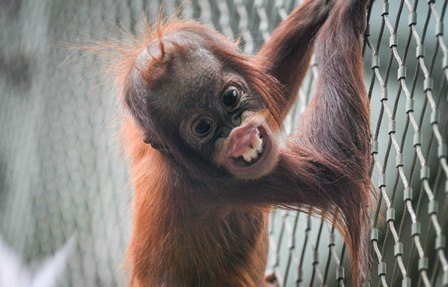
“Although I got into conservation vet work because I want to protect the environment and wildlife, I realise now that conservation is also about people.
“Chester Zoo is an extended family that all realise that by conserving the environment, we are protecting ourselves as the human race. This attitude is enhanced by the amazing people I have the honour of working with in South East Asia and Africa. Seeing all these people be empowered, develop and succeed in protecting the environment and wildlife (whether working at the zoo or for one of our supported programmes) is the defining success for Chester Zoo. It’s that that makes this organisation so great – it’s investment in people to protect the environment.
“Technically as a zoo vet we face many new clinical situations throughout our career, with new species and new emerging disease. This is a challenge, but by working as a team we try to provide the best possible outcome for the animals.
“More philosophically, as in all walks of life, a challenge is often miscommunication – this can lead to unintentional conflict between parties; something particularly poignant for an organisation working across all continents. For the vet work in particular, it is training non-vets in the science and art of emerging infectious disease. Unfortunately people are often more receptive AFTER a disastrous disease outbreak, rather than acknowledging the need to be prepared before such a disaster.
“In addition to the work I do in the zoo, I also work overseas. I work in Africa, Malaysia and Indonesia directly on training and assessing vets, conservation managers and government officials on all aspects of wildlife clinical work, including representing OC/OVAG, and Chester Zoo, in the political arenas of the countries we work in. Part of this work also includes linking our colleagues with each other to increase animal health educational opportunities.
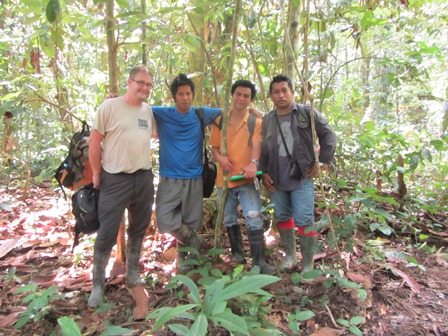
“I am a vet advisor to a conservation impact Non-Government Organisation (NGO) and help assess the conservation impact of conservation NGO’s (including being asked to assess them ‘on the ground’), I am an inspector for the European Alliance of Wildlife rehab centres and sanctuaries (EARS), I am the vet Liaison for the IUCN supported Advisory committee on ape reintroduction – we assess ape reintroduction back to the wild programmes, I am a member of the IUCN wildlife health specialist group, and as such assist with wildlife health advice.”
I am Steve Unwin, veterinary officer at Chester Zoo, and I Act for Wildlife
As Steve mentions above one of the projects we support, which established to safeguard the remaining populations of Sumatran and Bornean orangutans, is the Orangutan Veterinary Advisory Group (OVAG). Read our next blog, containing more information about the project.